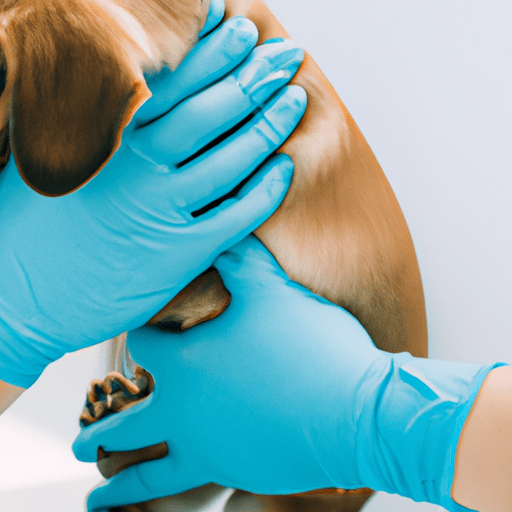Understanding Your Dog’s Anal Glands
When you take on the responsibility of caring for a dog, there are many aspects that you need to consider. One of these is the health of their anal glands. Most dog owners are unaware of the fact that dogs have two small glands located just inside their anus. These glands produce a foul-smelling fluid that dogs use to mark their territory.
In normal circumstances, this fluid is naturally expressed when your dog defecates. However, sometimes these glands can become blocked leading to discomfort for your canine friend.
The Frequency of Anal Gland Expression
The frequency of anal gland expression will highly depend on your dog’s own body. Some dogs may never need their anal glands expressed, while others may need it done regularly. As a caregiver, you need to be vigilant about your dog’s behavior.
- Regular bowel movements: If your dog is having regular bowel movements, and they are firm, chances are their anal glands are being expressed naturally.
- Scooting behavior: If you notice your dog scooting their rear on the carpet or grass, or excessively licking their rear end, it may be a sign that their anal glands need to be expressed.
- Changes in behavior: Other signs can include changes in their behavior such as being less active, showing signs of discomfort or even aggression when their rear end is touched.
When to Seek Professional Help
There is a general consensus among veterinarians that anal gland expression should be left to professionals, unless it is a frequent issue.
- Veterinarians: Vets are trained to do this procedure safely and hygienically. They can also spot any signs of infection or other issues.
- Professional groomers: Some professional groomers offer this service as part of their grooming package.
- DIY: If your vet suggests that your dog’s anal glands need to be expressed often, they may show you how to do it at home.
Preventing Anal Gland Problems
Prevention is always better than cure. Here are some ways to prevent anal gland problems:
- High-fiber diet: A high-fiber diet can help produce firm stools that naturally express the anal glands.
- Regular exercise: Regular exercise can also help maintain regular bowel movements.
- Weight management: Overweight dogs are more prone to anal gland issues. Keeping your dog’s weight under control can help prevent this problem.
| Prevention Method | Description |
|---|---|
| High-fiber diet | Promotes firm stools |
| Regular exercise | Encourages regular bowel movements |
| Weight management | Decreases the likelihood of anal gland issues |
Frequently Asked Questions
Q: What causes anal gland issues in dogs?
A: Several factors can contribute to anal gland issues in dogs, including obesity, allergies, and a diet that doesn’t provide enough bulk for the dog to express the glands naturally.
Q: Can anal gland issues lead to serious health problems?
A: If left untreated, blocked anal glands can become infected and abscessed. This can be a painful condition that may require surgical intervention.
Q: How often should I check my dog’s anal glands?
A: If your dog doesn’t show any signs of discomfort, there’s no need to check the glands regularly. However, if your dog has had issues in the past, you should check every few weeks or as recommended by your vet.
As a caregiver, you play a vital role in ensuring your dog’s overall health and happiness. Being aware of the signs and symptoms of potential problems like anal gland issues is an essential part of dog ownership.



